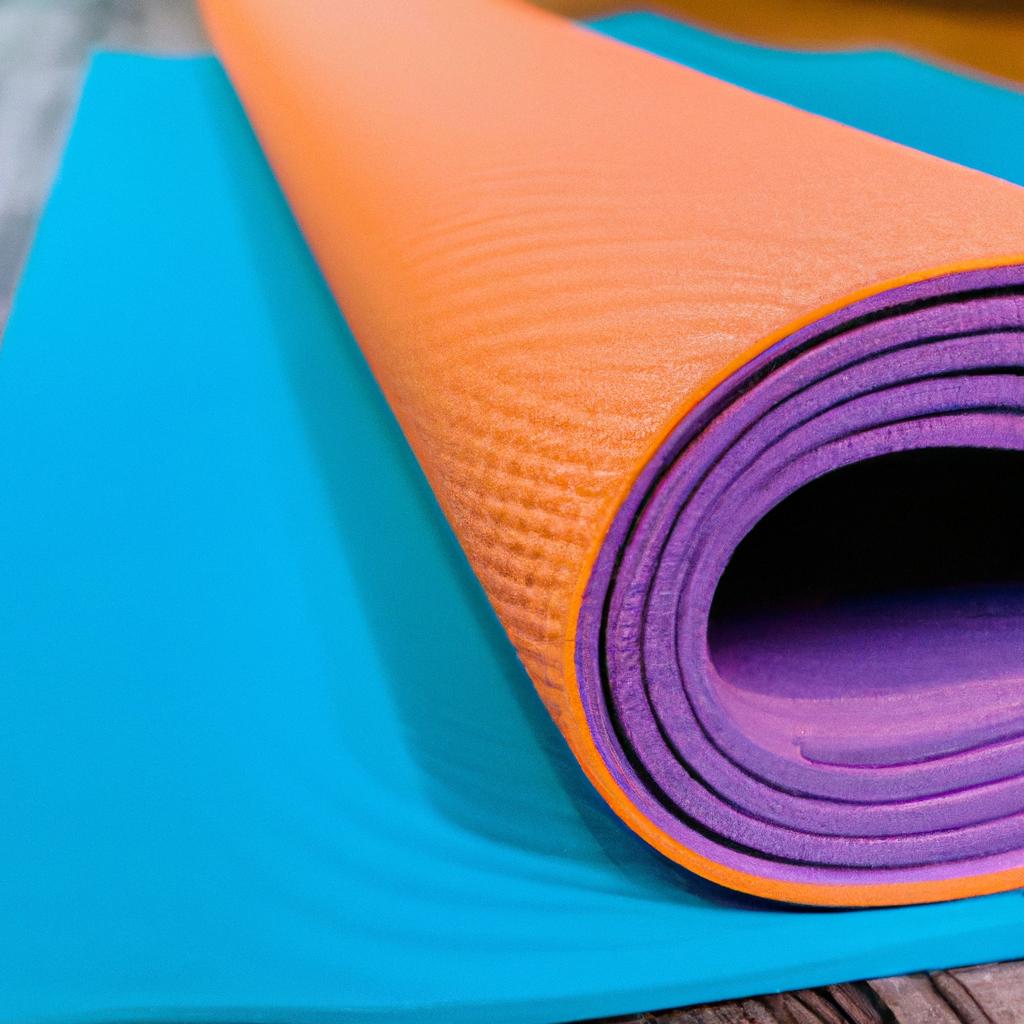What is Self-Care and why is it Important?
Self-care has become something of a buzzword, but it can be difficult to define its true meaning. Simply put, self-care refers to anything which people do to look after their physical, emotional, and mental wellbeing. This could include things like getting enough sleep, eating a balanced diet, exercising, taking time out for yourself, or engaging in activities which make you feel good. It is about looking after yourself and nurturing yourself so that you can live your best life.
It is becoming increasingly recognised that self-care is essential for living a healthy life. Self-care helps to build resilience and prevent burnout. Self-care can help to maintain a healthy balance between work, relationships, and leisure time. It can help to reduce stress and ward off illnesses.
Building a strong self-care practice is beneficial for everyone, regardless of age, gender, culture, or profession. Everyone deserves to be taken care of and this starts with looking after ourselves. By prioritising self-care, we can foster a better relationship with ourselves and help to create a more balanced lifestyle.
Key Factors Affecting Physical Self-Care
Physical self-care focuses on taking good care of your body by nurturing it with the right nutrition, exercise, and healthy habits. It’s important to realize that physical self-care is not a one-time thing, but rather an ongoing process. There are several key factors to consider when it comes to taking care of your physical health.
- Nutrition – Eating healthy, balanced meals and avoiding processed foods is essential for good physical health. Creating a diet plan that offers variety and includes all the major food groups is best. Include sources of lean protein, whole grains, fruits, vegetables, healthy fats, and dairy.
- Exercise – Regular exercise is important for keeping your body healthy and functioning properly. In addition to aerobic exercise, try to incorporate strength training, stretching, and balance exercises into your routine.
- Sleep – Getting enough sleep is essential for both physical and mental well-being. Most adults need seven to nine hours of sleep each night to stay at their optimal energy level and maintain good physical health.
- Stress Management – It’s important to be aware of your stress levels and manage them accordingly. Learning to cope with stress in healthy ways such as deep breathing, yoga or meditation can help keep your body in a relaxed state.
- Avoiding Substance Abuse – Abuse of substances such as alcohol, tobacco, and drugs can cause serious health problems. When making decisions about consumption, consider potential short-term and long-term physical risks.
- Health Care – Taking the time to see a healthcare provider for regular check-ups and assessments is important in order to maintain good physical health. Getting preventive screenings, vaccinations, and detecting health problems early can all contribute to a better quality of life.
By paying attention to these key factors and incorporating them into your daily routine, you can be well on the way to maintaining good physical health. Remember that self-care is an ongoing process, so make sure to give yourself some love and take time to practice self-care!
Manage Stress, Improve Mental Health with Self-Care
It’s no secret that life throws curveballs from time to time, causing you to feel anxious or overwhelmed. It can be tempting to take a back seat and let life take its course but that is rarely the best option. Self-care is an important part of maintaining mental health and wellbeing; it’s a way of taking care of yourself and managing stress and emotions.
Self-care looks different for everyone, and there are plenty of ways to practice good self-care. Making sure to get enough sleep, eating healthy meals, exercising regularly, and taking breaks from work are all great ways to look after your mental health. Additionally, activities such as meditating, talking to friends, or writing down your thoughts can give you the emotional release you need.
Creating boundaries is also an important part of self-care. Setting limits for yourself and your personal space can help you manage stress and feelings of overwhelm more effectively. Similarly, making time for yourself and avoiding over commiting to activities can help prevent burnout.
When it comes to technology, it can be both beneficial and detrimental. We can’t deny the convenience of services like online shopping and social media platforms, but it is worth taking breaks from technology to give yourself some breathing space. Taking time out to switch off from the virtual world helps to reduce stress and clear your mind.
Sometimes it is difficult to find motivation or be kind to yourself when working on self-care. However, it is important to remember that every effort counts and that small steps can lead to big changes in your lifestyle. It might be helpful to write down goals or make plans to track your progress, and enlisting the help of friends or family can be great for accountability.
Share Tips for Good Diet and Exercise as Part of a Regular Self-Care Routine
Regular exercise and healthy eating habits are the basics of self-care. Eating nutritiously and exercising regularly can help reduce stress, improve mood, and increase energy levels while helping to keep the body and mind healthy.
For maximum health benefits, adults should aim for at least 150 minutes of moderate-intensity physical activity per week. This can be spread out throughout the week in shorter blocks of 10-15 minutes or accumulated into longer blocks.
When it comes to diet, there is no one-size-fits-all solution. Everyone is different and what type and amount of food works best for one person may not necessarily work for another. But the key is to eat in moderation and include all essential nutrients – proteins, carbohydrates, and fats. Foods that are high in fiber (such as fruits and vegetables) should be included in meals. Additionally, it’s important to stay hydrated by drinking plenty of water.
Eating meals in a relaxed environment and having smaller, more frequent meals throughout the day can also help with digestion and reduce feelings of overwhelm.
Making a conscious effort to fit exercise and healthy eating into daily routine can be challenging, but once a habit is formed, reaching those goals becomes easier. Start off slow, gradually increase intensity, and be patient – it takes time.
Relaxation for Self-Care
Self-care is often seen as a way to keep our minds and bodies healthy, yet it can also be about taking time to relax and rejuvenate, too. Taking the time to wind down and relax can help us to stay calm in times of stress.
We all have different ways we like to relax and unwind. Here are some ideas to get you started:
- Mindfulness Meditation: Try shutting your eyes and paying attention to your breath for a few minutes. Slowly notice any sensations in the body and allow them to come and go without judgement.
- Yoga: A great way to relax both the body and the mind. Look for beginner classes online.
- Art / creative projects: Anything from colouring to painting is a great way to express yourself and focus on something away from work or stressful situations.
- Music: Create a playlist of your favourite songs or listen to calming music.
- Gardening: Get outdoors and tend to your garden. Even if you don’t have one, you can find peace in walking through or tending to a local greenspace.
Whatever it is, make sure you give yourself permission to take the time to focus on relaxation. Dedicating time to recharging is just as important as being productive.
Exploring Ways to Make Time and Space for Self-Care
Self-care is a crucial element of leading a healthy and balanced lifestyle. In order to practice self-care, you need to make time and space for it in your already hectic schedule. Here are some simple steps that you can take to fit self-care into your day.
Schedule It Out
The first step towards making time for self-care is by scheduling it out. Look for opportunities within your daily routine where you could potentially incorporate any type of self-care activities. You could do something as small as taking a few minutes to meditate or reading a chapter of a book during your lunch break. Make sure to set aside enough time for yourself so that you can fully reap the benefits.
Plan Ahead
Once you have identified when and where you should practice self-care, it is important to plan ahead. Before each activity, think about what you need in order to make it successful and have all the supplies ready. Whether it is assembling the materials for your yoga class or curating a soothing playlist for a relaxing bath, having everything prepared beforehand can help you focus and make the most out of the experience.
Break It Up
If carving out a large chunk of time for self-care is difficult, try breaking it up into smaller segments instead. For instance, you could spend five minutes of every hour stretching or doing mindful breathing exercises. Breaking it up makes it easier to work around other commitments and makes it more likely for you to do it regularly.
Make it a Habit
Once you get used to making time and space for self-care, it will become easier to continue practicing it regularly. Though it may require some dedication at first, it will soon become a habit that you enjoy and look forward to. As with any new routine, make sure to be patient with yourself and to not get discouraged if it takes you a while to get used to it.
In today’s world, technology has become an ever-present part of our lives. While technology can be used to help us improve our self-care practices, it can also be a major distraction and a source of stress. Learning how to use technology in a balanced way is key to successful self-care.
When it comes to utilizing technology as a tool for self-care, there are a few things to consider. First and foremost, it is important to know the kinds of activities you should be avoiding when taking care of yourself. These could include excessive time on social media, smartphones, or gaming. Additionally, be aware of the potential health risks that come with too much screen time, such as fatigue, headaches, and difficulty sleeping.
On the other hand, technology can also be used as a positive tool for self-care. For example, there are many digital apps and websites available which are designed to help improve mental health. These include meditation and mindfulness applications, as well as online forums for talking to professionals for advice or support. Additionally, technology can be used to remind yourself of things like medications or regular self-care rituals.
Bottom line, learning how to use technology in a balanced way is key to successful self-care. While the temptation to stay glued to our devices can be strong, it is important to make sure we are carving out time for ourselves to relax, unwind, and practice self-care.
Work Through Common Roadblocks
It’s all too easy to get discouraged when attempting to make a change for the better, especially when those changes involve making time to take care of yourself. There are several common roadblocks in the way of effective self-care practices.
Lack of Motivation
A lack of motivation can be caused by many different factors, from feeling overwhelmed to having too much on your plate and feeling like taking care of yourself is an impossible task. When this happens, it’s important to remember that making time for yourself doesn’t have to be a grand gesture or a long-term commitment; just five or ten minutes at the end of each day to focus on your wellbeing can make all the difference.
Difficulty Setting Boundaries
For many people, setting boundaries about the amount of work they’re willing to do, or the time they’ll dedicate to taking care of themselves can be a challenge. If you find yourself struggling with this, start simple. Make small, achievable goals, and be realistic about how much you can accomplish. If you’re not sure where to begin, try setting aside five minutes twice a day for some mindfulness or relaxation practice.
Self-criticism
Finally, many of us struggle with negative self-talk or low self-esteem. It can be hard to move forward if we’re constantly telling ourselves that we’re not good enough or don’t have time to take care of ourselves. The best way to combat this is to replace those negative thoughts with positive ones. Consider the ways in which dedicating some time to self-care will benefit you, both in the long- and short-term. Remind yourself that your wellbeing matters, and that taking care of yourself is worthwhile.
The Benefits of Self-Care
Self-care is the practice of taking time to look after a person’s physical and mental health. It is an important way to make sure that you have the energy and wellbeing necessary to lead a happy, fulfilling life. There are many benefits that come with incorporating self-care into your lifestyle:
- Reduced risk of depression and anxiety
- Improved mental clarity and ability to focus
- Increased energy and productivity
- Better physical health, including lower risk of chronic illnesses
- Enhanced self-confidence and self-esteem
- Greater sense of contentment and satisfaction in life
These benefits of self-care can be achieved by making lifestyle changes such as stress management, getting regular exercise, eating a balanced diet, and getting enough sleep. There are also practices such as yoga, mindfulness meditation, journaling, and breathing exercises that can help improve mental and physical wellbeing.
Improving Overall Wellbeing Through Self-Care Practices
Studies have shown that taking the time to prioritize self-care practices can have tangible benefits on people’s overall wellbeing. The implementation of a regular self-care routine can help reduce stress, manage anxiety, and promote healthy lifestyle choices. By considering your physical, emotional, and mental needs, you can develop a balanced approach to self-care that works for you.
Physical wellbeing can be improved through good nutrition and regular exercise. Eating a balanced diet and engaging in physical activity helps maintain a healthy body weight, reduces the risk of chronic illnesses, and increases energy levels. Incorporating restful sleep into your routine is also beneficial in regulating your physical and mental wellbeing.
Mental health can be improved through activities that help build resilience and positive coping skills. This may include relaxation practices like meditation or yoga, as well as spending more time with friends and family. Another important component is setting boundaries and learning when to say “no”, which can help reduce stress and manage anxiety levels.
Emotional wellbeing is linked to all aspects of self-care. Positive affirmations, creative activities, and honest conversations can help nurture strong relationships that provide emotional support. Taking part in activities that build self-esteem and confidence can also have a big impact on overall emotional wellbeing.
All of these strategies work together to boost overall wellbeing. Taking the time to practice self-care can help reduce stress, improve mental and physical health, and give you the emotional support you need to handle life’s challenges.
Outline Actionable Steps to Start Practicing Self-Care
Taking care of our mental and physical needs is essential for our overall wellbeing, and self-care is the perfect way to prioritize our own health. In order to get started on a self-care routine, there are a few simple steps that can be taken to ensure success.
The first step is to make a plan. Think about what it is you’d like to get out of committing to a self-care routine and create a schedule that works for you. Depending on your lifestyle and commitments, it could be implementing self-care habits daily, weekly or even monthly. Each individual needs to figure out what feels most reasonable and comfortable.
Once a plan is in place, it is important to set realistic expectations. It can be easy to put too much pressure on ourselves when starting something new, so it’s best to take it one day at a time and give yourself room to learn and adjust as needed. Additionally, creating an environment conducive to self-care is essential. Make sure you have plenty of space and privacy to devote to your routine- this could include avoiding distractions or creating a designated meditation area.
Once everything is in place, it’s time to start taking action! Having accountability partners or support systems in place can be helpful for staying on track. Whether it’s a partner, family, friends, or online community, having someone there to help remind you and encourage your efforts can go a long way. Additionally, don’t forget to acknowledge and celebrate your successes, no matter how small.
The purpose of self-care is to make sure we are tending to our physical and mental needs. If at any point it feels like a habit is actually making us more stressed or overwhelmed, it is always okay to take a break, re-assess, and modify it as needed. Small adjustments or changing up the routine can help keep things interesting and enjoyable.
Self-care comes in many forms, and by taking the time to figure out what works best for you, you can create a routine that fits your lifestyle and helps to keep you healthy.
Conclusion
Although each individual’s self-care practice will look different, the importance of it remains the same: Self-care is essential for physical and mental wellbeing. It’s about prioritizing yourself and your needs in order to be able to accomplish all of your goals. After all, how can we give our best if we’re not also taking care of ourselves first?
By practicing self-care, you can become happier and healthier. Taking the time to invest in yourself can reduce stress, improve sleep, and ultimately make life more enjoyable. To get started, create an actionable plan for implementing self-care strategies in your own life. Find activities that bring you joy and nourish your soul. Set healthy boundaries and make time for relaxation. Nourish your body with good nutrition and exercise. Above all else, remember that self-care is a lifelong journey.
comments: 0



